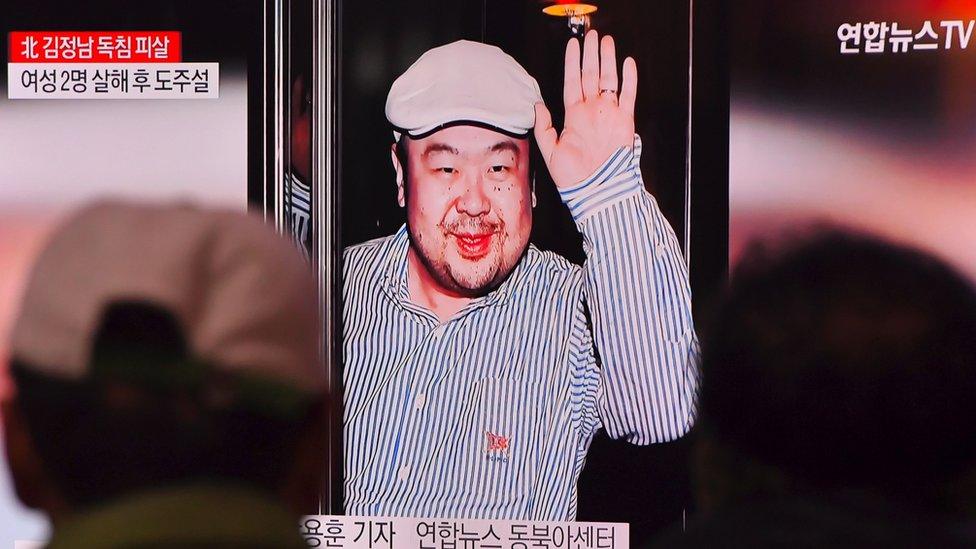Kim Jong-nam: What is South Korea's take on the killing?
- Published
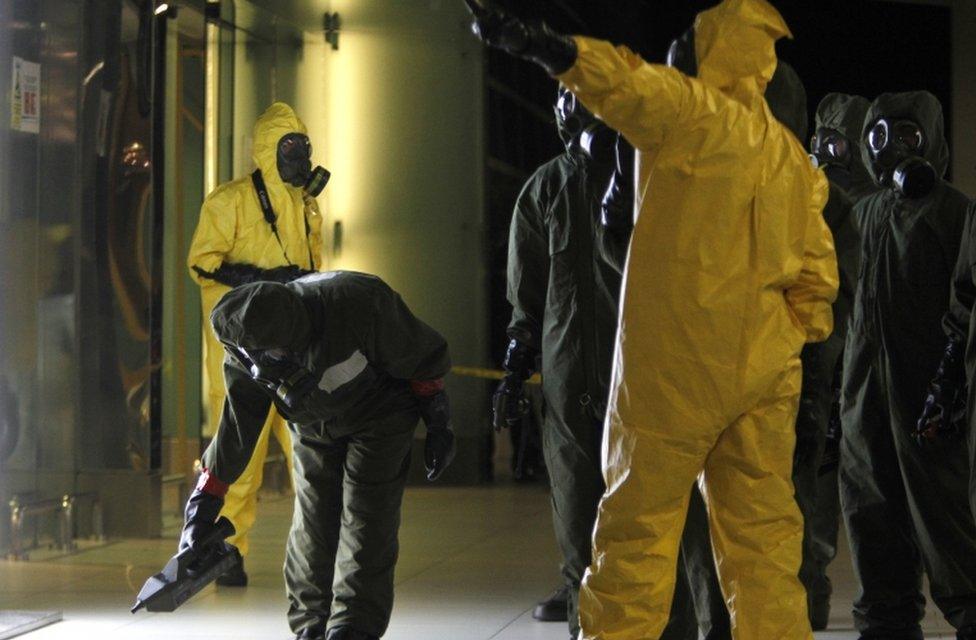
Teams sweep Kuala Lumpur airport for VX traces after the killing
Only a few people know why VX was chosen - presumably by North Korea - as the chemical agent of Kim Jong-nam's assassination, and they're not talking.
The (perhaps unwitting) women who smeared his face with the highly toxic oil are unlikely to know much about the substance.
And the men who left the terminal in Kuala Lumpur for Dubai even as the victim staggered around seeking medical help are not about to share their secrets with anyone far from Pyongyang.
But in South Korea, there is much speculation. Was it a deliberate signal from the North that nuclear isn't the only weapon of mass destruction just over the border?
Or was it simply an effective way of killing a reclusive man in a public place?
Who in North Korea could organise a VX murder?
Unravelling the mystery of Kim Jong-nam's death
It has certainly raised the temperature in South Korea. Monday's Joongang Daily says: "The government must take steps immediately to protect the country from chemical weapons dangers."
The editorial raises the spectre of North Korea supplying terrorists with the substance (in the same way it may have helped Pakistan with nuclear technology and Syria with missile development).
The editorial continues: "North Korea is known to have chemical weapons from 3,000 tonnes to 5,000 tonnes. It could threaten the world if Pyongyang sells any of these weapons to Islamic militants or other extremists to secure hard cash."
The advantage of poison
There is no doubt that the attack has sent a tremor of fear through the defector community in South Korea.
Fugitives who were previously easy to contact have gone to ground. Thae Yong-ho, the diplomat who defected from the London embassy last year, already had bodyguards as he went incognito around Seoul but they would not have been able to protect him against a seemingly innocent member of the public just coming up and smearing him with a speck of VX.
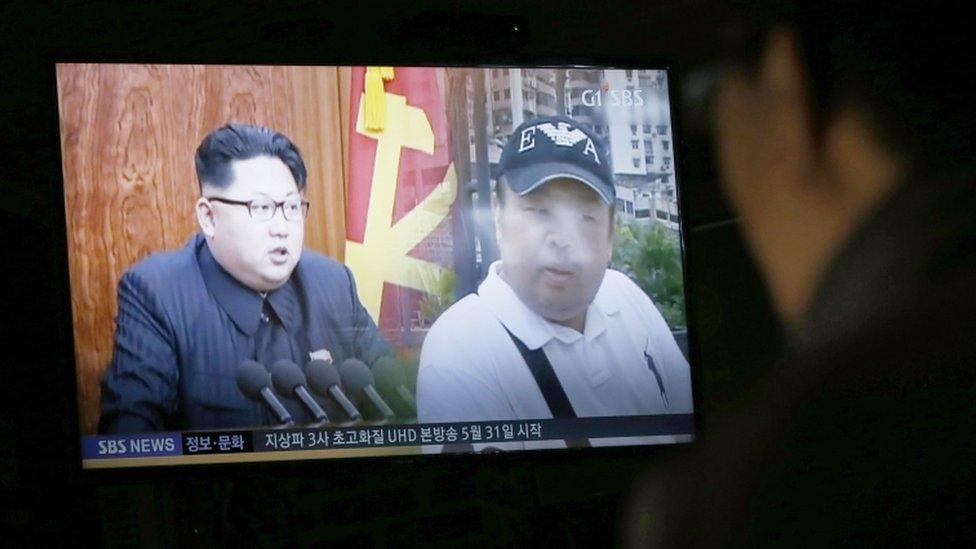
South Korean TV coverage of the killing is watched intently at a restaurant in Pyeongchang
Two years ago, the American ambassador in Seoul was lucky to survive when his face was slashed with a blade in public. How much easier it would be to kill someone with a mere trace of a chemical.
The great advantage of poisoning for the assassin is that it can be perfectly targeted and it kills with little immediate fuss. Only scientific examination afterwards reveals the cause.
Those behind Kim Jong-nam's killing watched, then left.
Alexander Litvinenko, a fugitive spy from Russia, took tea with two former KGB agents in London in 2006 and died three weeks later of poisoning by radioactive polonium-210, believed to have been administered in the cup.
The BBC producer, Georgi Markov, was murdered at a bus stop in central London in 1978 but his killer vanished in the crowd seconds after the victim felt the pin-prick from an umbrella used like a syringe to inject the fatal poison. He had been a thorn in the side of the Bulgarian communist government but so simple and bloodless was the killing that nobody was ever identified as the perpetrator.
The efficiency of poison as a means of assassination is leading North Korea watchers in South Korea to think that there was no great intention to send a signal by using VX specifically.
Koh Yu-hwan, of Dongguk University, thinks that VX was chosen because of its efficiency; North Korea - or at least leader Kim Jong-un - allegedly wanted Kim Jong-nam dead and VX offered certainty.
It also offered the possibility that the death would pass as being from natural causes, at least for the time before a serious post-mortem scientific examination could take place.
Chang Yong-seok, of Seoul National University's Institute for Peace and Unification Studies, adds: "North Korea was already under immense pressure over its efforts to develop nuclear weapons and intercontinental ballistic missiles, and also its human rights issues. Things will get even more complicated for Pyongyang if its chemical weapons issues are thrown into the mix."
There are benefits and costs to Pyongyang of being caught red-handed. On the one hand, it would send a signal to dissidents that there will be no escaping the regime's ruthlessness.
On the other, it also says to North Koreans that the regime at the top is insecure and fratricidal.
Those who share blood, spill blood
News from outside does get into North Korea and the revelation that one ruling Kim was allegedly having his half-brother bumped off could scarcely strengthen the regime in the people's eyes.

There is speculation in the South about the role of the women involved
As a columnist in Daily NK puts it: "With the influx of information pouring into North Korea, more of its citizens are learning for the first time of Kim Jong-nam's existence, prompting them to speculate on the motive for the assassination."
There is some speculation in South Korea about the role of the two women suspected of carrying out the hit job. One researcher told the Associated Press news agency that the theory VX had been mixed from two innocuous chemicals into a deadly combination on the victim's face was unlikely.
The expert said that VX could be produced in this way but not reliably. It is more likely that it was applied in its deadly form by people wearing protective gloves.
"The security camera footage shows one of the women heading to the bathroom to wash her hands after attacking Kim. If she touched VX with her bare hands, she wouldn't have had the time to do even that," the researcher told AP.
If the means of murder is causing debate, the motive is not. In dynasties with hereditary rule, brothers are rivals. The plot reads like a John le Carre novel or a Shakespeare history play, where those who share blood, spill blood.
- Published23 February 2017
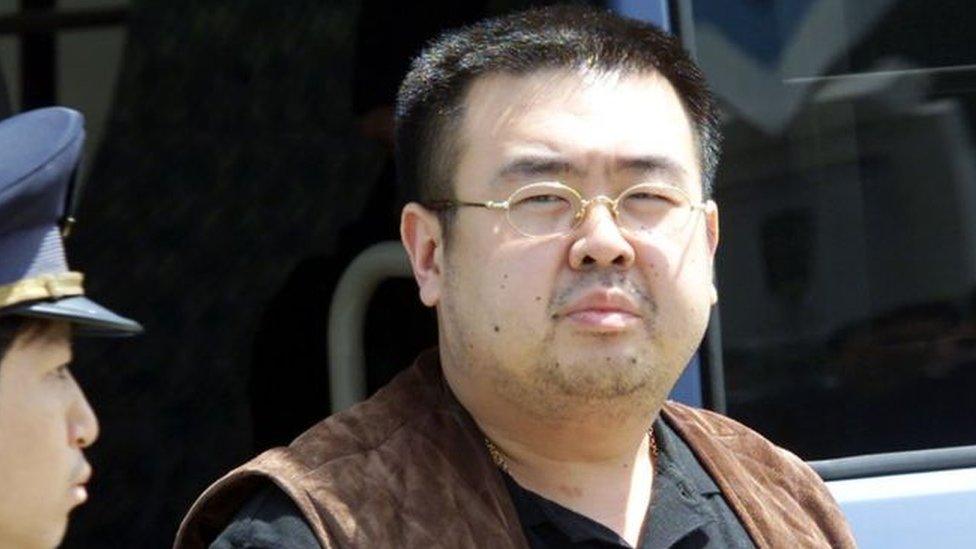
- Published23 February 2017
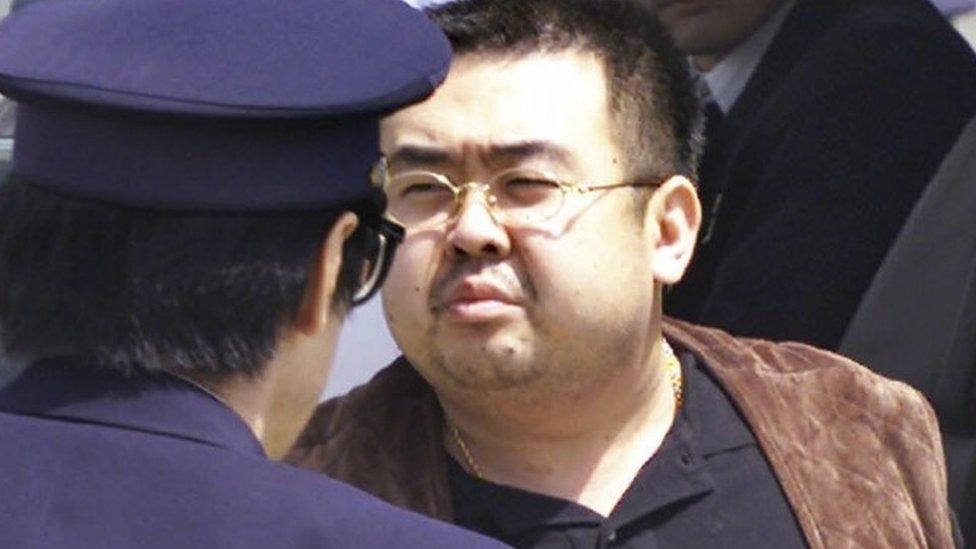
- Published16 February 2017
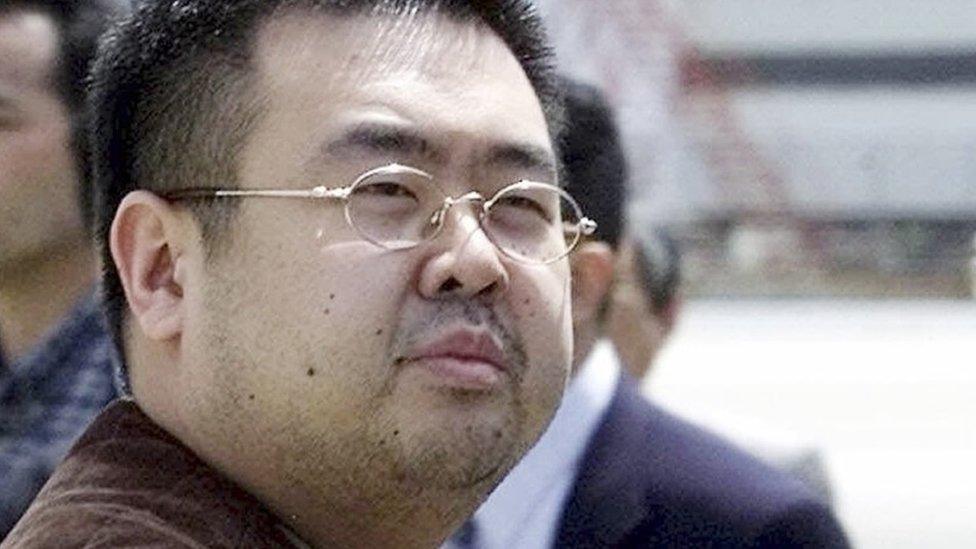
- Published15 February 2017
